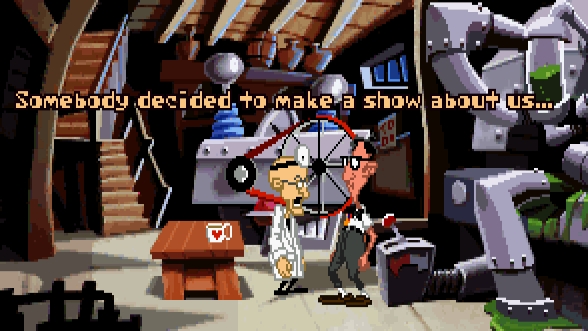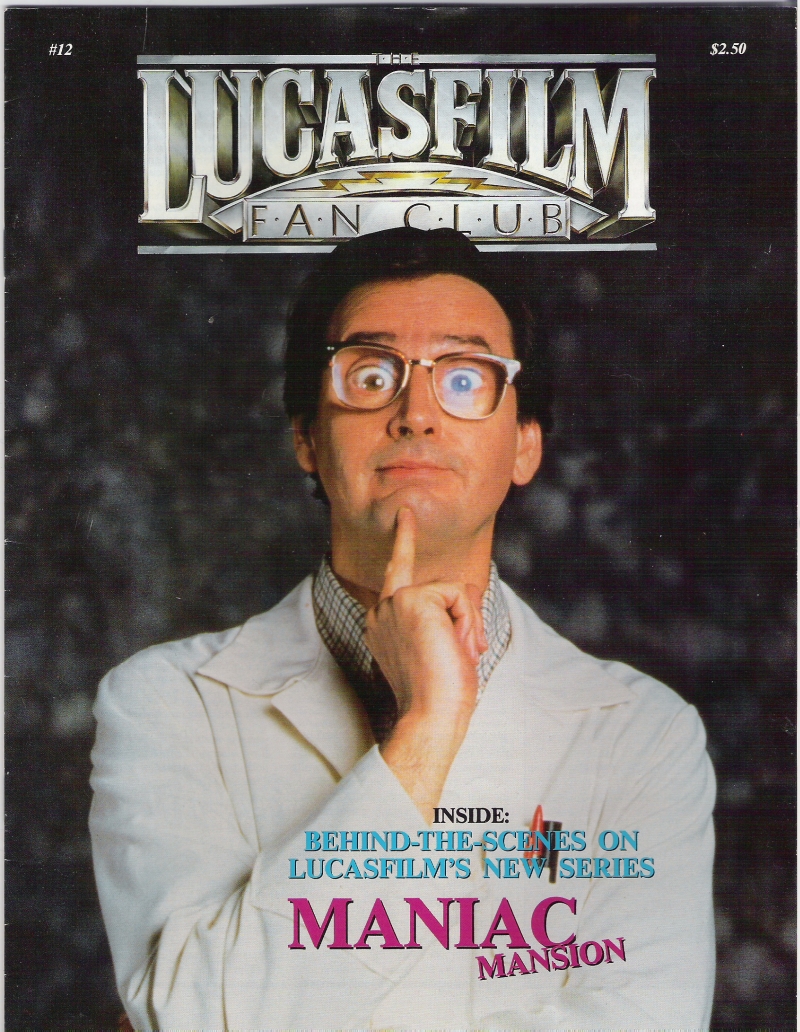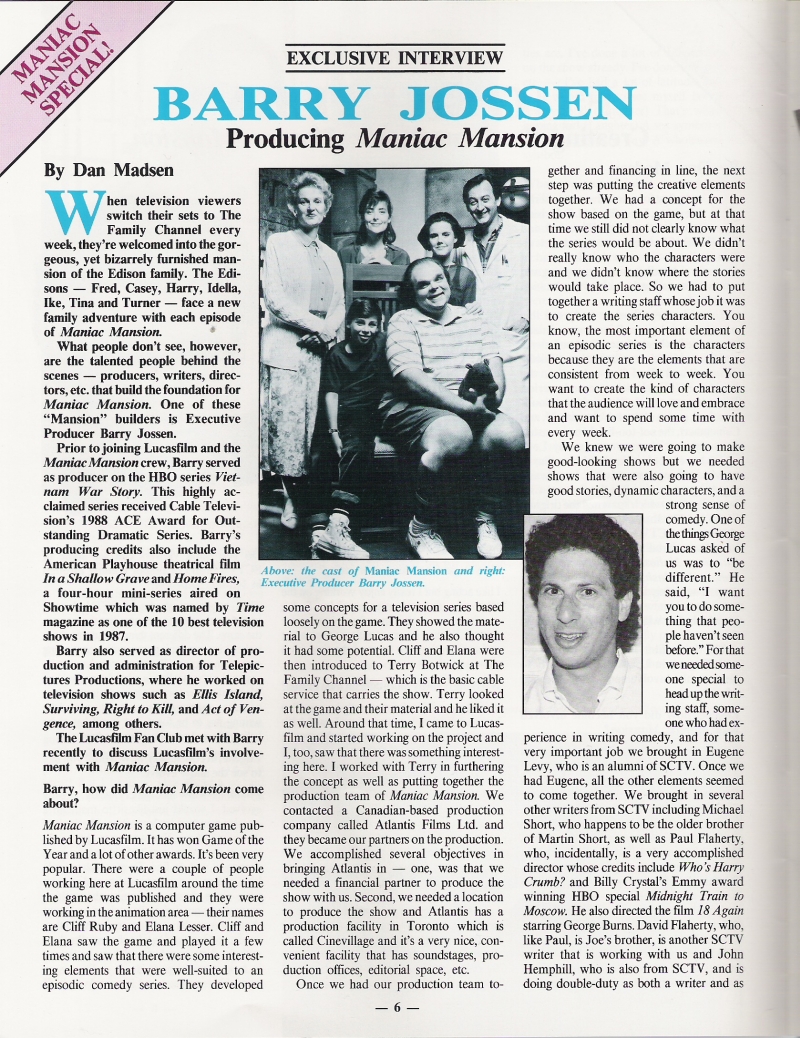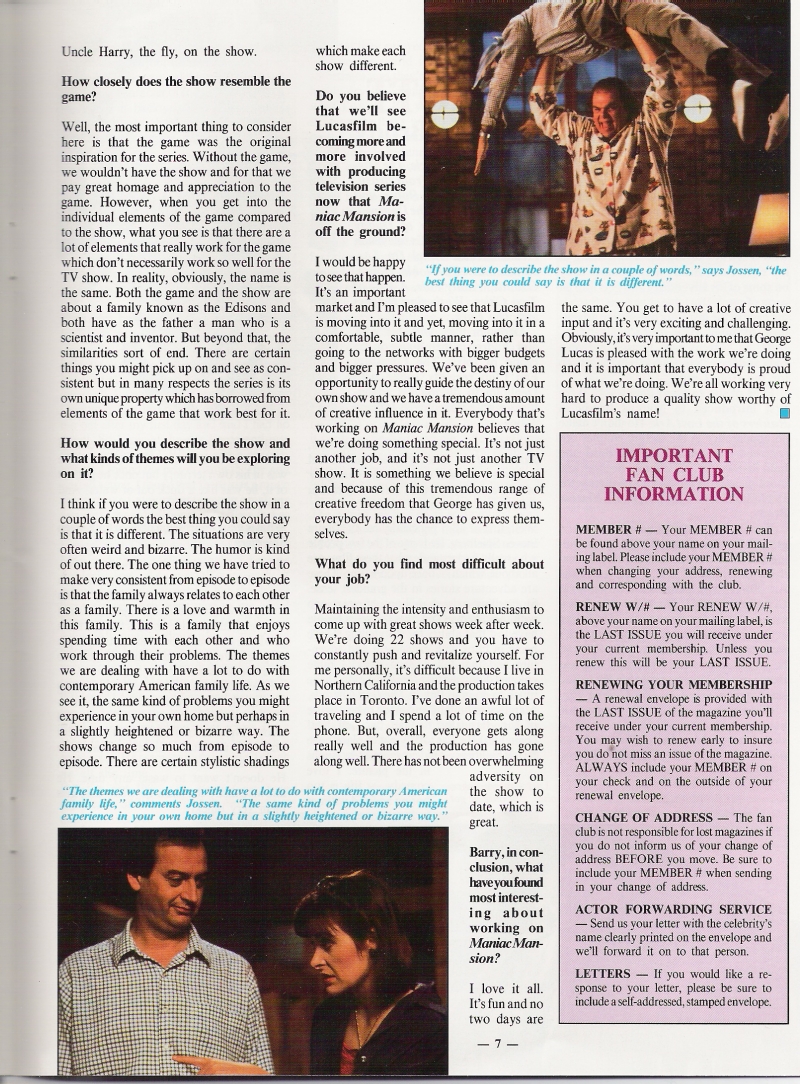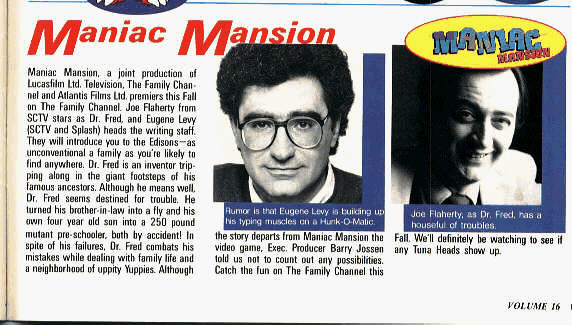How many LucasArts graphic adventure games can claim to have been adapted into a live action television series? Depending on whom you ask, the answer may still be zero, as to call the Maniac Mansion TV series an adaptation of the classic video game of the same name gives the word “adaptation” connotations that probably weren’t intended – namely, that it applies to things that aren’t in any way adaptations.
I imagine that few people, even those intimately familiar with Maniac Mansion the game, are even aware of the series’ existence, or, if they are, only know what they were informed by a quick and disquieting peek at the intro theme on Youtube.
But the obscure and off-kilter show deserves the courtesy of a second look, if for nothing else than because it represents one of the most downright bizarre developments ever related, however tangentially, to the legacy of its beloved inspiration.
The notion of bringing the pioneer of LucasArts’ point ‘n click genre to the small screen at all may strike one as a rather peculiar light bulb to go off in anybody’s head, but consider that Maniac Mansion was a popular video game, for whatever that was worth in the realm of mainstream back in 1987, and that there was actually such an entity as "Lucasfilm Ltd. Television." George Lucas, to his credit, was never adverse to this kind of experimentation with his properties; we shouldn't forget the aborted Monkey Island animated movie that was under development ten years ago.
And so it came to pass that a few people were tasked with putting together a series bible for a Maniac Mansion series. Little is known about this first draft vision, but it apparently boiled down to an Addams Family/The Munsters clone centered around the Edisons and loosely but recognizably based upon the SCUMM game you and I know and love.
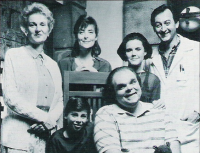
- Barry Gossen, executive producer
However, it was not to be. In need of a creative head for the gestating show, Atlantis Films (the company that would be joint producing the show with Lucasfilm) turned to Canadian comic actor/writer Eugene Levy of "SCTV" (which, for those too young to remember, was the great sketch comedy that launched folks like John Candy, Rick Moranis, Harold Ramis and Martin Short) fame, who was given free reign in reshaping the concept however he saw fit, right down to its very premise. Caring little for the generic haunted house approach one presumes was more tonally faithful to the game, (which even money says he wasn’t very familiar with prior to his involvement with the project), Levy essentially threw everything out and started from scratch, conceiving the surreal, lighthearted sitcom that the show ultimately became.
In the end, there were literally three similarities between the show and the computer game that allegedly inspired it – 1) the title, 2) lip-service being paid to the presence of a supernatural meteor beneath the house, and 3) a family called the Edisons, the patriarch of which is a wacky scientist/inventor named Dr. Fred. That’s it.
Indeed, despite having its fair share of wacky characteristics, including an uncle who has been turned into a fly and a toddler being mutated such that he has the body of a grown man, Maniac Mansion is a surprisingly sweet-natured show that delves into the types of mundane, family-related issues that you might find in usual American sitcoms. Dr. Fred, played by talented character actor and SCTV performer Joe Flaherty, who you might recognize from his bit part as the Western Union guy from the ending of Back to the Future Part II, is here depicted not as a possessed, maniacal insomniac with green skin, but as a bumbling and likable inventor whose lab experiments never pertain to forcefully removing the brains of college teenagers. With two adolescent kids, Tina and Ike, and a loving wife named Casey (who shares nothing in common with her pixel-painted counterpart Edna), Fred’s problems and misadventures are decidedly more grounded in real life than anything that transpires in the schlock horror/scifi universe of the game.
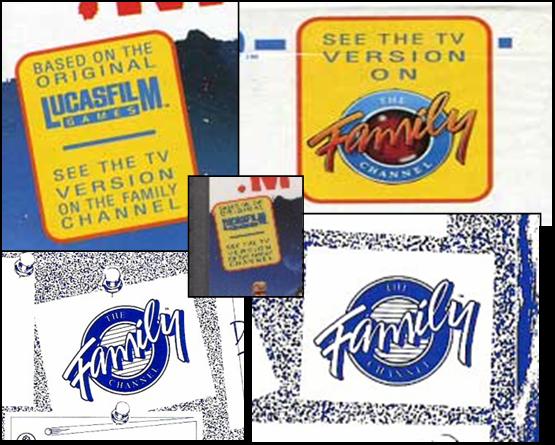
The show certainly still had a personality unique among sitcoms with the two mutated family members and its off-beat brand of humor, which was unafraid to break through the fourth wall and even entered all-out meta territory at times. The success of the comedic elements is owed at least partially to the fact that Levy brought along a number of SCTV cohorts for both writing duties and to play guest roles. Having only seen a few episodes of the show myself, I don’t feel particularly qualified to pass much judgment on it, but I’m sure it’s for legitimate reasons that it garnered a fan base of its own.
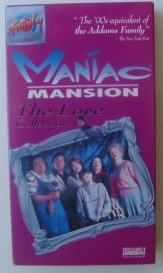
- Eugene Levy, head writer
So the show has its merits, but one thing is certain – it had no business retaining the moniker once all kinship with the video game had been stripped away. Maniac Mansion may have been a hit upon its release in PC gaming circles, but it was still plenty obscure enough that the name alone would be insufficient to sell a show. Why not drop the tie-in altogether, then, when all leaving the name inevitably succeeded in doing was severely disappoint and confuse fans of the source material?
It would have been nice if there hadn't been an active effort to attract, and therefore bamboozle, the game’s audience – the packaging of the Nintendo version sports a yellow advert declaring the series’ existence, and its abridged version of the foldout bulletin board hint poster even gives real estate to multiple Family Channel logos. It seems to me that with any other name Maniac Mansion would have still ended up being a quirky little family series with the same-sized fan base without needlessly pissing off a specific segment of people who committed the sin of trusting the accuracy of the “Based on an original computer game by Lucasfilm Games” text that inexplicably remains a prominent part of the opening credits.
The show’s exceedingly tenuous relationship with the story based game didn’t just baffle the game’s fans, but people who would go on to play key roles in the game franchise as well. Dave Grossman, co-project leader of Day of the Tentacle, once humorously remarked that although Maniac Mansion’s 1993 sequel is a loose one, it “still resembles it a lot more than that TV show did.” And of course, one of DOTT’s funniest gags is the one that makes the television series (not to mention the original game itself, as a game) part of the series’ canon.
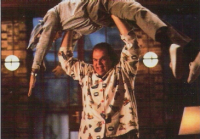
- David Fox, lead scripter on the original game, tweets a response to a fan who discovered the Maniac Mansion TV show
The series aired on YTV in Canada (where it was produced) and the now defunct The Family Channel here in the States. Interestingly, the American version had one of those awful, artificial laugh tracks added to it. It premiered in the fall of 1990 – coinciding with the game’s release on the Nintendo – and lasted for three seasons and sixty-six episodes, ending its run in the spring of 1993. Although the show received some positive press, its popularity was ultimately modest, and aside from a VHS of two romance-themed episodes dubbed “The Love Connection” that The Family Channel put out in ’92, the already twenty year old Maniac Mansion has yet to see release on home video. Hopefully it gets the DVD treatment one of these days, as I’d love the opportunity to watch the whole series, especially now that I’m older and no longer harbor the resentful bitterness for it being so different from the namesake I hold dear. Until such time, any of you man enough to admit curiosity in the show can view the uploads of some diligent fans.
I also recommend checking out our gallery of magazine scans below, as they contain interesting background information on the show as well as interviews with Eugene Levy and the show’s executive producer Barry Jossen.
